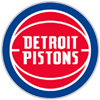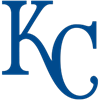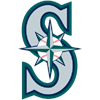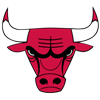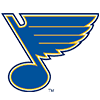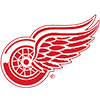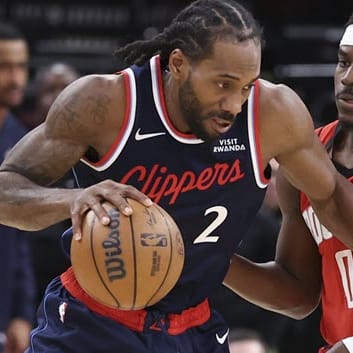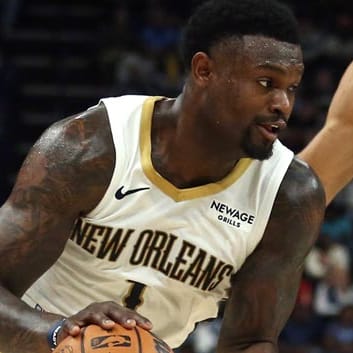Certified athletic trainer, and sports injury analyst, Jeff Stotts examines the biggest injuries around the league coming out of the All-Star break.
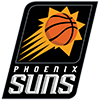 Chris Paul, Suns
Chris Paul, Suns
Paul's All-Star celebration, and inclusion on the league's 75th anniversary list, was undercut a bit
by news that the point guard will miss multiple weeks due to a thumb injury sustained prior to the break. News surfaced on the TNT telecast that Paul has been diagnosed with an avulsion fracture in his right thumb.
The thumb consists of three bones, two phalanges and the first metacarpal of the hand. The
proximal phalanx and first metacarpal form the metacarpophalangeal (MCP) joint near the base
of the thumb. The MCP joint is stabilized by two ligaments, the ulnar collateral ligament (UCL)
and the radial collateral ligament (RCL). The UCL is the primary stabilizer and the likely
contributor to Paul's avulsion fracture. When Paul's thumb was bent backward the UCL was
stressed. The UCL did not rupture but instead pulled away a tiny piece of bone, creating the avulsion fracture. But here's where things get interesting.
In 2017 Paul tore the UCL in this same thumb. The damaged ligament was repaired and fortified
with an InternalBrace ligament augmentation procedure. The suture tape augmentation was
designed to help improve the strength and reduce the chances of re-injury and help expedite
the associated recovery. Now, Paul has suffered a new injury in the same area and the status of
the improved UCL will need to be examined. If the
Certified athletic trainer, and sports injury analyst, Jeff Stotts examines the biggest injuries around the league coming out of the All-Star break.
 Chris Paul, Suns
Chris Paul, Suns
Paul's All-Star celebration, and inclusion on the league's 75th anniversary list, was undercut a bit
by news that the point guard will miss multiple weeks due to a thumb injury sustained prior to the break. News surfaced on the TNT telecast that Paul has been diagnosed with an avulsion fracture in his right thumb.
The thumb consists of three bones, two phalanges and the first metacarpal of the hand. The
proximal phalanx and first metacarpal form the metacarpophalangeal (MCP) joint near the base
of the thumb. The MCP joint is stabilized by two ligaments, the ulnar collateral ligament (UCL)
and the radial collateral ligament (RCL). The UCL is the primary stabilizer and the likely
contributor to Paul's avulsion fracture. When Paul's thumb was bent backward the UCL was
stressed. The UCL did not rupture but instead pulled away a tiny piece of bone, creating the avulsion fracture. But here's where things get interesting.
In 2017 Paul tore the UCL in this same thumb. The damaged ligament was repaired and fortified
with an InternalBrace ligament augmentation procedure. The suture tape augmentation was
designed to help improve the strength and reduce the chances of re-injury and help expedite
the associated recovery. Now, Paul has suffered a new injury in the same area and the status of
the improved UCL will need to be examined. If the UCL remains intact, it seems possible that
the augmented ligament did its job but may have contributed to the avulsion fracture. If the
UCL is damaged, surgery may be required.
For now, the Suns have not suggested surgery is an option. Instead, it appears they will take a
conservative approach with his care and let the bone mend itself. The team offered up a six-to-
eight-week recovery window for their All-Star, immediately tanking Paul's remaining fantasy
value. The NBA regular season has roughly seven weeks remaining, with the fantasy playoffs in
most head-to-head formats a mere 3-to-4 weeks away.
Cameron Payne is the obvious fantasy addition but tread cautiously as he is coming off a wrist sprain and hasn't played in more than a month. Cameron Johnson is another Suns player widely available and set for an increase in usage. Check your waiver wire for the availability of both.
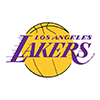 Anthony Davis, Lakers
Anthony Davis, Lakers
The Lakers' big man is once again sidelined after rolling his ankle after landing on the foot of
Utah center Rudy Gobert. The resulting injury was not the expected lateral ankle sprain but a
more problematic mid-foot sprain.
The mid-foot is formed by the five tarsometatarsal joints located where the metatarsal bones
of the foot connect with the cuboid bone and the three cuneiform bones. Multiple ligaments
stabilize the many bones of the mid-foot, but the keystone of the mid-foot is the second joint
that is stabilized by a strong ligament known as Lisfranc's ligament. Lisfranc injuries often
sideline players for a considerable amount of time and surgery is often needed to address the
problem. Fortunately, it sounds like Davis avoided a Lisfranc injury and instead sprained one of
the other ligaments in the area.
The average time lost for nondescript mid-foot sprains in the NBA is roughly 12 games (or about 28 days). This data is in line with LA's recovery window of four weeks. However, the Lakers said
Davis would be reevaluated in four weeks -- not return to play. As a result, fantasy managers
should anticipate him sitting into late March or early April. Like Paul, the timing couldn't be
worse for fantasy purposes. Stanley Johnson and Talen Horton-Tucker will likely see an increase
in responsibilities with Dwight Howard also set to see regular minutes again.
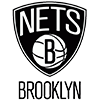 Kevin Durant, Nets
Kevin Durant, Nets
Durant has not played since suffering a medial collateral ligament (MCL) sprain in his left knee on January 15. The MCL sits on the inside of the knee and provides stability during lateral (side-to-side) motion. The ligament is capable of healing without surgical intervention, especially if medial meniscus remains unscathed. While he admitted the recovery has been slow, Durant has resumed on-court work and has an outside chance at returning when games resume. It's more likely he has a short ramp up period and is back by the end of the month. Either way Durant should be back in action before the fantasy postseason kicks off.
Fast Breaks
Dillon Brooks, Grizzlies: The swingman has missed 19 straight outings after suffering a serious ankle sprain. He was slated to miss 3-to-5 weeks when the injury occurred, but that timeline has come and gone. Now, the focus has shifted to an early March return. He remains a top-100 fantasy option and is worth a stash for now. De'Anthony Melton continues to fill in admirably and should be rostered in most formats.
Draymond Green, Warriors: Golden State's versatile forward is making progress from the herniated disc in his lower back. Green's issue is in the disc located between the last vertebrae of his lumbar spine and the sacrum. The associated impingement is causing issues in his lower extremity, specifically his calf. The team released an update prior to the break that reported an
improvement in his condition but failed to provide an estimated timeline on a possible return.
Fortunately, Green did that himself, telling his TNT cohosts during the All-Star Game that he is hoping to return in 3-to-4 weeks. However, look for Golden State to slowly build up his minutes and provide him routine days off as needed. The impending return of James Wiseman could also impact Green's playing time when he is cleared to come back. Green is too valuable to drop but fantasy owners will need to scale back their expectations for the remainder of the season.
Norman Powell, Clippers: The midseason pickup is out indefinitely after suffering a broken bone in his big toe. Powell fractured the medial sesamoid in his left foot and is now out indefinitely. A sesamoid bone is a type of bone that "floats" within the tendon of a muscle as it passes over a joint. Most sesamoids are positioned in a way that increases the moment arm of their associated tendon. As a result, the torque is increased causing the range at which a joint can
bend or rotate to also increase.
The average time lost for sesamoid fractures in recent seasons is roughly 19 games, meaning he has an outside chance at a late season return. However, like most of the players we have discussed today, the injury severely limits his fantasy value for the remainder of the season.








